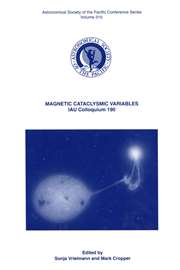No CrossRef data available.
Article contents
The Teaching of Astronomy and Social and Economic Development
Published online by Cambridge University Press: 12 April 2016
Extract
Sometimes we may ask ourselves how can astronomy, a science with apparently few points of contact with technology or industrial production, help the economic development of people?
My paper is an account of an experiment undertaken in Uruguay on the teaching of astronomy in secondary schools. We seek to show how astronomy may contribute to the development of nations that, like Uruguay, need to create their own technologies to overcome their economic backwardness.
Though the introduction of astronomy in the secondary education curriculum in Uruguay dates back to 1889, in 1986 the Educational Supervisory Office made a radically different proposal for the methodological and programmatic orientation of astronomy teaching. The proposed goal is clear: the teaching of astronomy in secondary education should be geared not to train technicians but to create a scientific-minded youth. It is not important if later, in their university studies, these young people go into medicine, engineering, or economics; the important thing is a reevaluation of sciences in the eyes of adolescents, who often slide along the comfortable slope of certain humanistic areas, in which they wind up by the process of elimination. (One often hears the argument, “I’m studying law because it doesn’t have mathematics.”) Further, above all those considerations, the most important thing is to create thinking minds, the minds of free people.
- Type
- 13. Developing Countries
- Information
- International Astronomical Union Colloquium , Volume 105: The Teaching of Astronomy , 1990 , pp. 403 - 405
- Copyright
- Copyright © Cambridge University Press 1990




